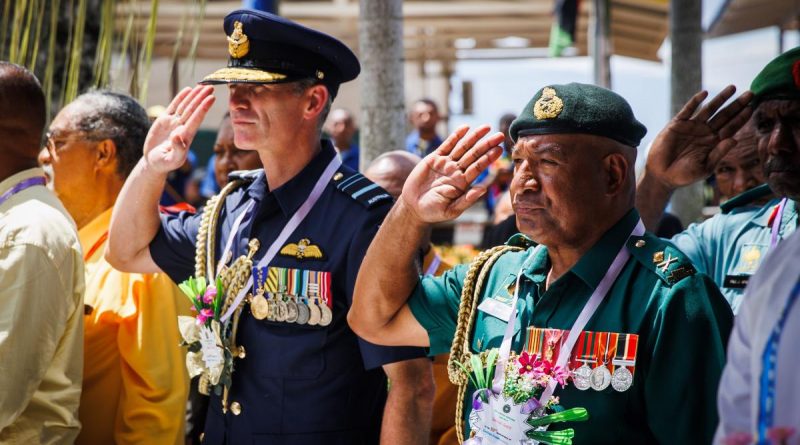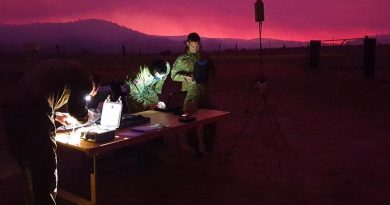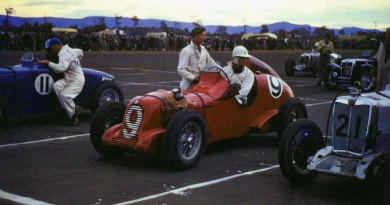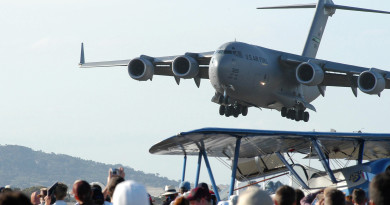50 years since RAAF’s worst peacetime crash

Fifty years ago, 25 Papuans and Australians were killed in the crash of Royal Australian Air Force Caribou A4-233.
CAPTION: Chief of Air Force Air Marshal Robert Chipman and PNG’s Chief of Defence Force Major General Mark Goina at the service to commemorate the 50th anniversary of the RAAF Caribou A4-233 crash in Port Moresby. Story by Wing Commander Ivan Benitez-Aguirre. Photo by Corporal Cameron Pegg.
On 28 August 1972, a Royal Australian Air Force Caribou took off from Lae heading to Port Moresby.
Onboard Caribou A4-233 were 25 Army cadets of De La Salle College (now De La Salle Secondary School) and Popondetta High School.
Aged between 16 and 18, these young men were considering military careers in the service of their nations.
Also on the aircraft were three Royal Australian Air Force aviators and an Australian Army liaison officer.
The tragedy is considered one of the worst aviation peacetime accidents in RAAF history.
Fifty years later, a commemorative service was held at De La Salle Secondary School in Papua New Guinea.
In attendance were representatives from the Australian Defence Force, including the Chief of Air Force Air Marshal Robert Chipman.
Air Marshal Chipman said he was honoured to give a speech at the event, paying his respects to the fallen and revealing his personal connection to the accident.
“My father was also flying Caribous at No. 35 Squadron in 1972,” Air Marshal Chipman said.
“We lived in a house in Port Moresby during the months when he flew around the highlands.
“He was great mates with Graham, the aircraft captain.
“They joined the RAAF Academy together, learnt to fly Caribous on the same course and played sport together.
“My younger brother is named Antony Graham, in honour of their friendship.”
Air Marshal Chipman spoke about a survivor from that crash, who demonstrated great heroism.
“Injured and bleeding, Patrick Tau-Gau of De La Salle Secondary School pulled himself free of the aircraft wreck.
“He then returned to the flames and dragged out six of his fellow cadets,” Air Marshal Chipman said.
“Patrick’s story of heroism does not end there – for the following three days, Patrick led three of the survivors on an arduous trek through the jungle until they were rescued by an Air Force Iroquois helicopter.
“Patrick didn’t leave with his fellow survivors, though.
“He knew that there was another survivor back at the crash with a broken leg.
“Despite his own injuries, and despite having been trekking through the jungle for three days, Patrick chose not to go to hospital, but instead went back to save his mate.
“When I think about the actions of Patrick Tau-Gau, I am inspired by his example.
“When in times of trouble, when tragedy strikes, good people step forward.”
For his heroism and for his determination to save as many as he could, Patrick was awarded the George Medal.
.
.

.
.





